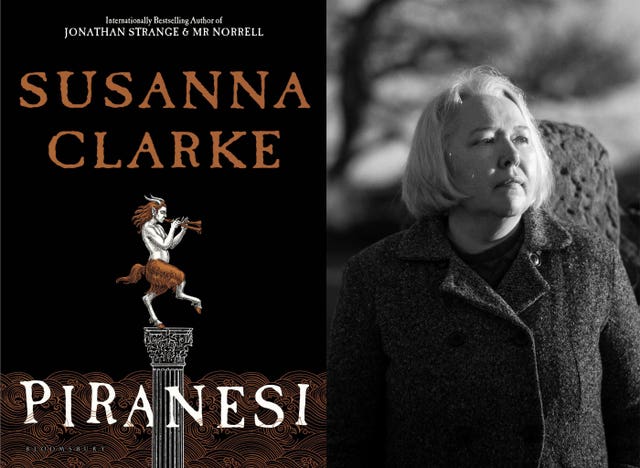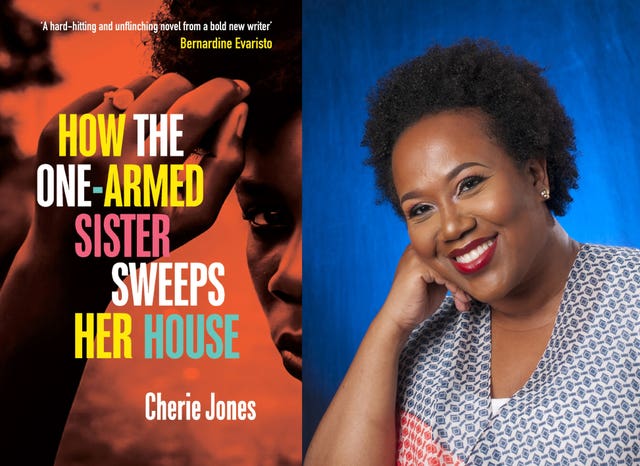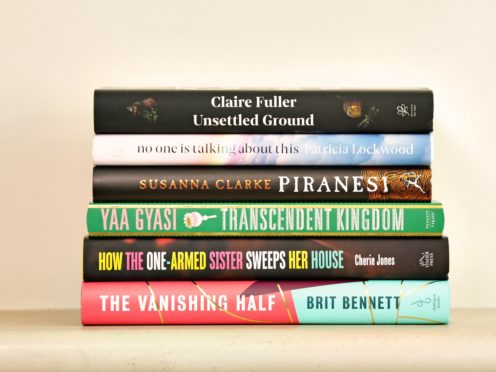Susanna Clarke, Brit Bennett and Cherie Jones are among the novelists shortlisted for this year’s Women’s Prize for Fiction.
The six novels explore themes including family, identity, addiction, oppression, racism, mind-altering drugs and more, from rural Britain to Barbados.
Now in its 26th year, the prestigious prize is open to original fiction written in English by women from anywhere in the world.

Alongside Booker Prize winner and chair of judges Bernardine Evaristo, the judging panel also includes podcaster and journalist Elizabeth Day, radio host Vick Hope, print columnist Nesrine Malik and presenter Sarah-Jane Mee.
Clarke is on the shortlist for her second book in only 16 years, Piranesi, following the success of her debut, 2004’s Jonathan Strange & Mr Norrell.
Malik said of the work: “It spirits you away into a fascinating universe that stays with you long after you’ve put the book down.”
The Vanishing Self, by US writer Bennett, also features.
It follows twin sisters who grow up in a black community but live separate lives as adults, with one hiding their racial identity.

Evaristo praised it as a “beautifully written novel, and psychologically very complex, and it looks into the consequences of racism and its effect on the human psyche, and how it can determine people’s lifestyle choices and relationships and shape their fate”.
Jones is shortlisted for How The One-Armed Sister Sweeps Her House, about love and despair in Baxter’s Beach, Barbados.
“How the One-Armed Sister Sweeps Her House by Cherie Jones is a tale of violence, loss and love in Barbados, seen through four very vivid voices,” said Day.
Also shortlisted are Unsettled Ground by Claire Fuller, Transcendent Kingdom by Yaa Gyasi and No One Is Talking About This by Patricia Lockwood.

Evaristo stressed the continued importance of the Women’s Prize for Fiction.
She told the PA news agency: “I think the situation for women’s fiction has improved in the last 26 years. I don’t know what the statistics are in terms of men and women getting published, but when you look at the Women’s Prize you have to look at the history of fiction in this country, or really internationally, which has been predominantly male.
“Even though we have had 26 years of a prize that has championed women’s writing, we still actually have hundreds of years to make up for in terms of telling women’s stories. It is as important now as it was a quarter of a century ago to get those stories out there and to tell women’s stories from all the different ways and all the different perspectives that are possible.
“It still remains a really important prize for readers to focus on the best and most diverse of women’s fiction out there. It has become a focal point actually for women’s fiction. And I think we still need to make that distinction.”
The winner of the Women’s Prize for Fiction will be announced on Wednesday July 7 at an evening awards ceremony in central London.
The shortlist:
Brit Bennett, The Vanishing Half
Susanna Clarke, Piranesi
Claire Fuller, Unsettled Ground
Yaa Gyasi, Transcendent Kingdom
Cherie Jones, How The One-Armed Sister Sweeps Her House
Patricia Lockwood, No One Is Talking About This
